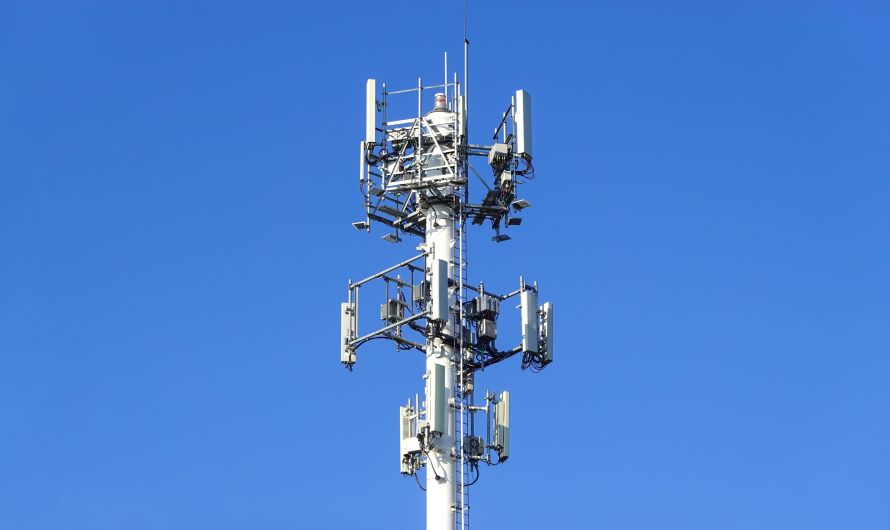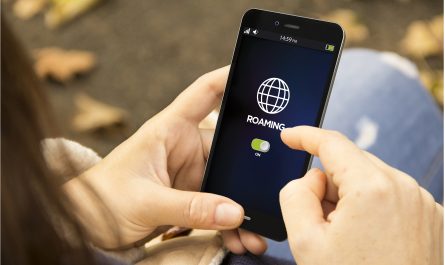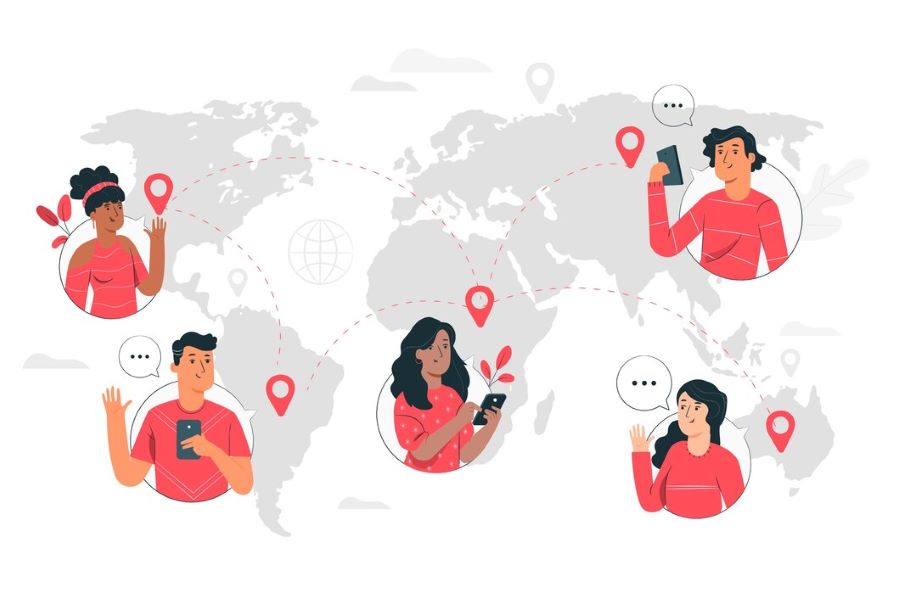With the advent of technology, the world is changing at an unprecedented pace. New ideas and concepts emerge every single day. The tech space has revolutionized the way we live and the way we think. And with this, the world has come a long way. The human civilization has been in existence for thousands of years and human brains have always looked forward to reforming it in certain ways. Whether it was the biggest inventions back in the day or arrival of the internet recently, everything has contributed substantially to the development of human societies and settlements.
Today, when the online space has taken over the world, it is leading mankind’s civilization. It is because the internet has altered our lifestyle dramatically, whether it is about connecting through cellular networks, saving data, communicating with the world, or conceptualizing ideas. And now we are in a time when technology standards have levelled up exceptionally.
Consequently, 5G – the new wireless standard – has come into the picture. But, what’s this 5G or 5th Generation network? Well, let’s delve deep into 5G technology and learn about 5G use cases, 1G to 5G evolution, applications of 5G technology, and more.
The Evolution of 5G
Marconi was the first person to send signals using radio waves back in 1895. Since then, there have been radical changes in the wireless communication world. However, the evolution began with invention of the mobile phone in the 1970s and soon the first generation rolled out in Tokyo in 1979. The evolution of 1G to 5G is a historic chapter.
The first generation (1G) became popular across the world in the 1980s when 1G technology brought in an advanced mobile system with voice-only services, analog switching, and a bandwidth of 10MHz. Then, 2G came in the 1990s with GSM technology and enhanced security, SMS services, roaming, digital switching, and encrypted voice transmission. The third generation (3G) system introduced UMTS with a higher data rate, video calling feature, multimedia message, high-quality games, location tracking, and more.

The fourth generation (4G) system is currently subscribed across the world. Using TD-LTE technology, it was introduced in 2012 with data rates up TO 1Gbps, high-definition features, enhanced security, HD gaming, and more.
The fifth generation (5G) is touted to be the fastest of them all with the strongest connectivity ever. It will have ultra-fast internet, higher security, cloud-based infrastructure, HD streaming, smart healthcare, autonomous driving, and more.
And this is how the 5G evolution took place and changed the world.
How Does 5G Work?
The fourth-generation technology serves as the foundation for the fifth-generation wireless network services. In 5G, the cell sites that make the networks are divided into different sectors that are responsible for sending all types of data through radio signals. These signals are transmitted from cell stations located on light poles, buildings, and other high-altitude places. To increase the transmission speed and retain low latency, multiple cell stations are built in different territories. It helps in building higher-frequency bands of spectrum.
How 5G is different from 4G?
The fourth generation (4G) mobile network standard has a maximum upload rate of 500 Mbps and a download rate of 1 Gbps. Here, the latency is about 50 ms and the network is good for high-speed applications, mobile TV, wearables, and more. However, it is less efficient than 5G.
The fifth generation (5G) is all about enhancing wireless connectivity, data transmission, better multimedia experience, and ultra-fast download and upload speeds. It will ensure high resolution video streaming, improved robots and medical systems, and low latency of about 1 ms.
5G Applications and use cases
This next-generation technology will benefit societies and machines in various ways. There are several 5G use cases and 5G applications that can restructure the entire world. The 5G uses range from device communication to business support.
- Enhanced mobile services with broadband-like connectivity
- Using the Internet of Things (IoT) to its optimum capabilities
- Better business management
- High-quality streaming and gaming
- More accurate information regarding location tracking
- Production of autonomous vehicles
- Revolutionizing the entertainment and education industries
- Waste management and water treatment
- Smart cities infrastructure
To elaborate in detail, let’s go through the following points:
Improvement in remote education
Due to the pandemic-infused era, remote learning became a norm for people. Students didn’t have much of a choice and had to depend upon unreliable networks. But, with the advent of the 5G era, the increased speed, better connectivity, and higher reliability will help boost remote education for students.
Advancements in healthcare sector
The healthcare sector can benefit largely with 5G technology. From patient monitoring, robot-assisted surgery to remote diagnostics, 5G can prove to be crucial in several ways.
Improvements in manufacturing operations
In comparison to the wired networks, 5G ensures more flexibility as it also retains more reliability, and low latency manufacturing needs. With 5G, the automated manufacturing operations can be reconfigured and this can help to meet the changing needs of the market.
Enhancement in agricultural productivity
As per industry reports, with the help of 5G’s high-capacity connectivity, smart agriculture can reach the rural farming regions and this will also help lower costs. This will enhance the overall agricultural productivity.
Efficient retail and personalization
The retail sector is also looking for ways to expand its digital capabilities and curate customised experiences for its customers and clients. Many of them are now turning towards new gen technologies and 5G will help move in that direction. An example in case is augmented reality that will help the customers to visualise furniture in their own houses, personalised commercials that are tailormade to suit every customers’ growing needs and much more.
So, these were the significant 5G use cases and applications. Isn’t it the best application of 5G technology? Well, it is and there is no doubt that 5G network applications will make far-reaching changes.
Types of 5G Wireless Services
There are two 5G wireless services that the network operators are offering:
- 5G cellular services
- 5G fixed wireless broadband services
5G SIM launch date in India
As per the GSM association report, it is believed that 5G networks will have more than 1.7 billion subscribers by 2025. Airtel has the highest pool of low band and mid band spectrum (Sub GHz/ 1800/ 2100/ 2300) bands, thanks to a smart spectrum acquisition strategy since several years. Airtel plans to roll out 5G services in various parts of the country, beginning with key cities first.
The Airtel 5G sim launch in India is expected to happen before the year ends and we collaborated with various tech partners such as Nokia, Samsung, Ericsson to help strengthen the process of delivering 5G SIM in India. For those unaware, Airtel was the first telco company to conduct a successful 5G trial in the year 2018. Then in 2021, we were the first telecom company to depict live 5G services over the existing liberalized spectrum in Hyderabad in 1800 MHz band.
Even the rural areas weren’t left out, as we conducted the first rural 5G trial in Delhi’s outskirts. Also recently, we launched India’s very first private 5G network at BOSCH facility, and in partnership with Apollo Hospital. We also demonstrated India’s first 5G connected ambulance.
Airtel 5G Sim price
The price of Airtel 5G sim cards will be similar to 4G prepaid plans and there will not be much difference in terms of the pricing of 5G and 4G SIM cards.
Airtel 5G sim Speed
Airtel 5G SIM will be 20-30 times faster than 4G internet. Hence, you will finally be able to download movies in HD, 4K videos and more, in just a few seconds.
Benefits of 5G Services
The major benefits of 5G services are as follows:
- Greater transmission net speed and lower latency
- Enhanced mobile broadband
- Faster public Wi-Fi
- HD video streaming and gaming
- Smart healthcare and robot systems
- Transform customer experience and improve business connectivity


 Get App
Get App  Airtel Store
Airtel Store  Login
Login 


